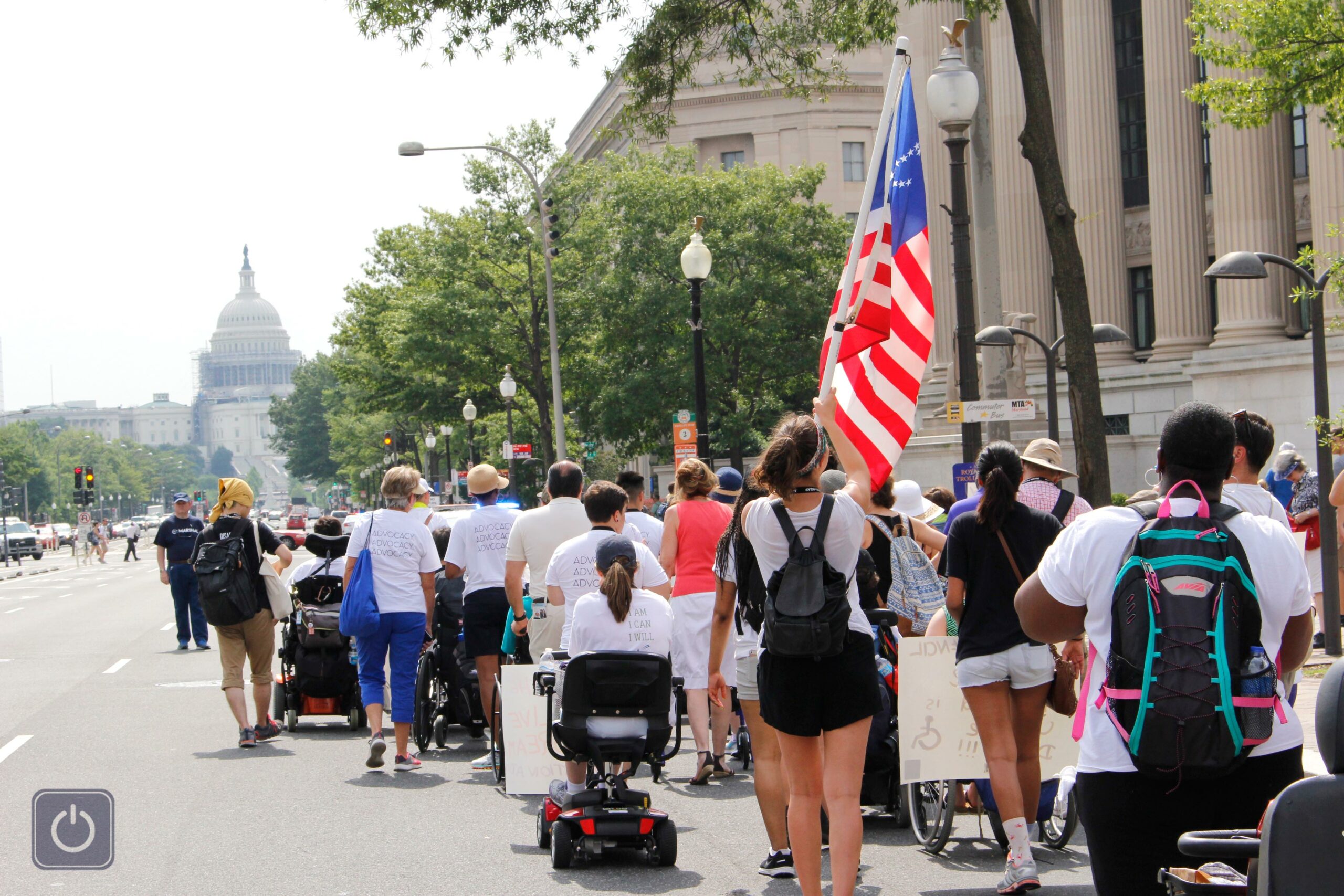Policy Principles
1. Community Integration

People with disabilities have the right to live independently in the community in the most integrated setting of their choice.
AAPD advocates for community integration policy priorities that:
- Ensure people with disabilities have access to:
- affordable home and community based long-term services and supports that enable people to be integrated into the community, including the expansion of the availability of home and community based services to end the institutional bias in the Medicaid program;
- affordable accessible housing, including non-provider owned scattered site housing, and will advocate against the use of institutional or congregate “clustered” models that segregate people with disabilities from their communities;
- accessible and affordable transportation; and
Promote the development of universally designed technology, and that ensure affordable access to that technology, to support people with disabilities to live independently.
2. Equal Opportunity and Economic Self-Sufficiency

People with disabilities have the right to equal opportunity, to be economically self-sufficient, and to earn and save without jeopardizing access to the services and supports that allow them to live and work independently.
AAPD advocates for equal opportunity and economic self-sufficiency policy priorities that:
- support individuals with disabilities to work in integrated competitive settings in which they are paid competitive wages and for policies that end segregated subminimum wage work;
- provide individuals with disabilities the opportunities to earn and save without losing access to services and supports through expansion of employment based services, including supported and customized employment, and improving Medicaid Buy In and other Medicaid options that provide access to home and community based services;
- improve and enhance inclusive workplaces in both the public and private sectors; and
- provide young people with disabilities opportunities to achieve economic independence, including through education, internships, and mentoring.
3. Equal Rights and Political Participation

Discrimination against people with disabilities that produces barriers to community integration, independent living, equal opportunity, economic self-sufficiency, and political and civic participation must be eliminated. Strong civil rights laws and enforcement of those laws are essential to ending discrimination.
AAPD advocates for equal rights and political participation policy priorities that:
- Strongly enforce the Americans with Disabilities Act, the Rehabilitation Act, and other laws that guarantee the rights and full participation of people with disabilities and for improvements in those laws when necessary;
- Allow people with disabilities to fully participate in the political process, including ensuring the accessibility of polling locations and through promoting the availability of accessible voting technology; and
- Promote the ideals of the Americans with Disabilities Act around the world to increase the ability of individuals with disabilities to travel, work, and live abroad.
4. People with Disabilities Have a Right to Quality, Comprehensive, Affordable Health Care

AAPD advocates for health care policy priorities that:
- Ensure people with disabilities have access to quality, affordable, and comprehensive health care;
- control over their health care decisions through the promotion of individual choice, person centered planning, and
- consumer self-direction; and
- Ensure the accessibility of health care facilities and medical devices and equipment.
